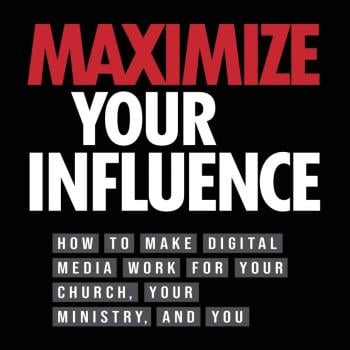Folks who know Brennan respond, I think, as much to the man as to the work. He was someone acquainted with failure but brutally honest about those failures as a husband, as a priest, as a person of faith, as a recovering alcoholic. What made it possible for Brennan to keep going was his perception of God as a God of grace who forgives before we have even asked, as in the story of the Prodigal Son. Like Brennan, I have failed more than my fair share of times, and yet here I stand today, not only alive, but joyful, forgiven and welcomed back into communion with God, humanity, and myself.
I believe grace is central to the Christian faith because I too wouldn't be here without it, and I don't think Brennan could have gone on for so many years—or have touched so many people through his teaching and his life—if he hadn't been extended that grace as well. So as authors, we wanted to extend that grace to Jack, and we also saw it at work in the character of Father Frank and others who had been broken but experienced the grace and forgiveness that allowed them to love and forgive others.
How did your perception of the prodigal son story alter after you became a father?
That question reminds me of a poem by my friend Scott Cairns, "The Spiteful Jesus," in which the speaker compares the prevalent figure of the angry God with the speaker's own earthly father:
I made him [The Spiteful Jesus]
for a corrupt, corrupting fiction when
my own father (mortal that he was)
forgave me everything, unasked.
I love my children—my boys, my girls—and like the Father in the Prodigal story, I would set out to meet them, to welcome them home, even if they had hurt me badly or offended my sensibilities. That kind of love is countercultural, counterintuitive, and hard to understand when you're a single person. I don't think I had any idea what real love was before I became a parent, but that extravagant love explains the story of the Prodigal—and of the God who loves us—in ways that are understandable because we can extrapolate from the human to the Divine.
In this novel, you made the father character more realistic than in the parable. What were your motivations in altering the story?
The parable of the Prodigal is a great story. It's been told and retold, most recently, perhaps, by Marilynne Robinson in Gilead and Home, but as well as she retold it, it seemed to me that there was still a lot of fictive space left open. We came back to the Prodigal and made all the characters more real, more fleshed out, because the primary difference between a novel and a parable is that a novel has to be about people, not about teachings. It has to be about conflict. Our Prodigal needed to be a creature of today if he was going to be a living breathing character and at the same time, help us illustrate some of Brennan's teachings in a dramatic way. So we had to give him a backstory, and make him believable at the same time as his life was going to demonstrate love and forgiveness.
Beyond the lessons Manning might have taught you while writing this novel, what are some personal discoveries you've made in finishing this work?
I can't claim that the book changed me in a substantial way spiritually, because Brennan and I were already substantially on the same page. It did confirm my beliefs in God's radical love, in the importance of our accepting that love, and in our recognition that God loves us as we are, not as we think we should be. At the same time, Jack's journey is a convincing story about how we are meant to respond to such transformative love—by being transformed.
I can say it was an amazing artistic experience to work on The Prodigal. I never would have written the novel in this way (my first three novels all have first-person narrators, and that was just not the way to tell this story) or explored Brennan as a character, as I did with The Prodigal's Father Frank, if I hadn't been asked to do the book. I grew so much as a storyteller wrestling with voice and creating real emotion with these characters. And I grew to love them. I hope I can come back to them someday and see where they are in their lives—and where I might take them next.




